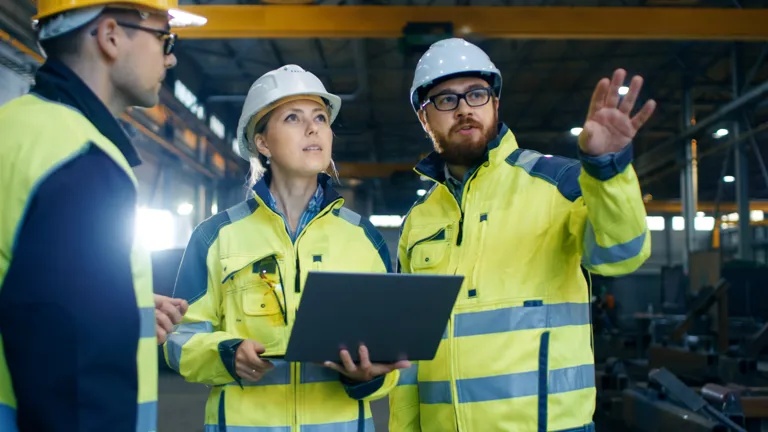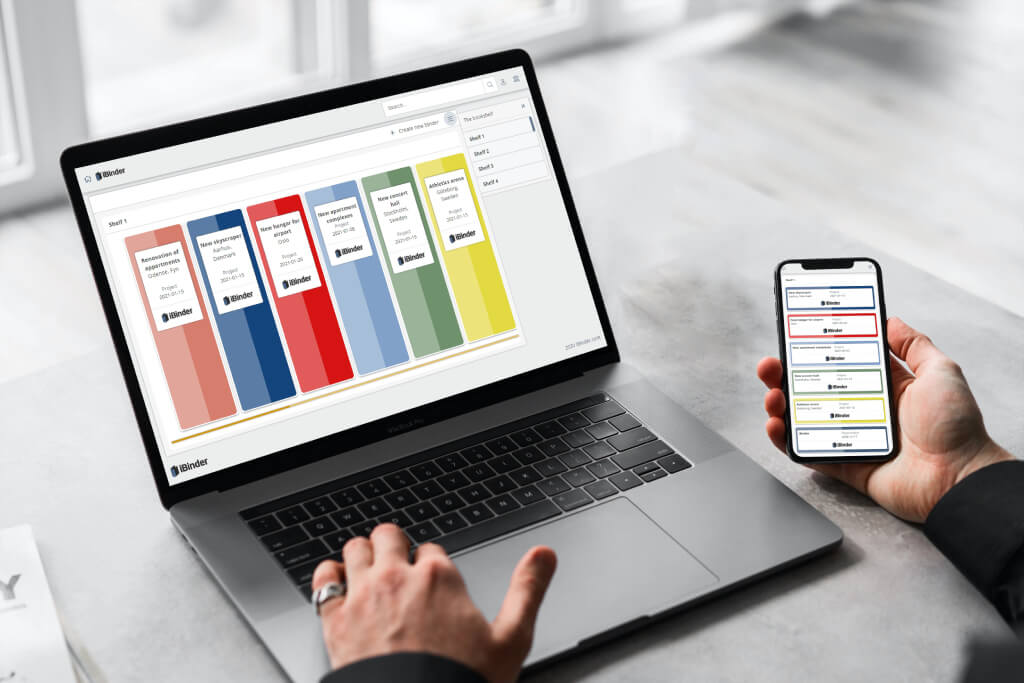Blockchain technology in the construction sector creates trust and transparency in EU supply chains
The construction industry is exploring the use of blockchain technology as a new and powerful tool for improving the transparency, security and efficiency of its supply chains

This 'distributed general ledger' technology, which is best known for underpinning cryptocurrencies, can be used to track materials, verify certification and make payments more efficient in construction projects. In this article, we take a closer look at how blockchain technology is being used in the construction sector in Europe.
What is blockchain technology?
Blockchain technology is a decentralised digital system that stores information in “blocks” that are linked together in a chain, with each new block containing a cryptographic reference to the previous block. This creates an inalterable and transparent data structure that can be used to record transactions, contracts and other information securely and reliably without the need for administration by a central authority.
European Blockchain Services Infrastructure (EBSI)
The European Blockchain Services Infrastructure (EBSI), a network of distributed nodes across Europe, is at the heart of the EU’s blockchain initiative. Although it is not specific to the construction industry, EBSI provides a foundation for blockchain applications in various sectors, including supply chain management.
Natalia Martínez Páramo, Sector Manager for EBSI at the European Commission, explains: “EBSI is designed to support a wide range of areas of use, from digital identities to educational credentials. For the construction industry, it offers a secure, standardised infrastructure that can be utilised for applications such as material tracking and smart contracts.”
Case study: Tracking of materials at HerenBouw
One of the most promising applications of blockchain in the construction industry is materials tracking. The ability to track building materials from source to site can significantly reduce fraud and ensure compliance with sustainability standards.
A prime example is the Dutch company HerenBouw, which has implemented a blockchain-based system to track the entire life cycle of construction materials. Sander van de Rijdt, co-founder of HerenBouw, shares his experiences:
“Our blockchain solution allows us to create a digital ‘material passport’ for each component used in a building. We can trace its origin, and track its transport and installation, thereby ensuring quality and sustainability at every step. This level of transparency has not only improved our relationships with customers and suppliers, but has also reduced our administrative costs by an estimated 50-60%.”
The system works by recording every transaction and movement of a material on the blockchain, thus creating an immutable record that can easily be checked. This has proven to be particularly valuable in ensuring the use of sustainable materials and adhering to the principles for achieving a circular economy, which is a key area of focus for EU building regulations.
Certification and compliance: The DigiPLACE project
Certification and compliance are other areas in which blockchain is a perfect fit. The EU-funded DigiPLACE project is exploring how blockchain can be used to create a digital platform for building permits and compliance checks.
Dr Antonio Aguiar Costa, Project Coordinator, explains the potential impact: “By storing building permits and compliance information on a blockchain, we can create a tamper-proof register that is easily accessible to all relevant parties. This could significantly reduce bureaucracy and speed up the construction process while also ensuring compliance.”
The aim of the project is a future in which building inspectors can instantly verify compliance history, planners can seamlessly submit and track permit applications, and regulators can more easily monitor industry-wide trends.
Smart contracts: Ferrovial’s payment revolution
Payments and contracts are also being revolutionised by blockchain technology. Smart contracts, which are contracts with the terms and conditions written directly in code, are used to automate payments based on project milestones.
The Spanish company Ferrovial is at the forefront of this innovation, and has tested blockchain-based smart contracts in several EU projects. María Jesús Soler, Ferrovial's Head of Innovation, shares the findings so far:
“Our blockchain-based smart contract system has reduced payment times by 20% and significantly improved cash flow among our subcontractors. Once a milestone has been completed and verified, payment is automatically triggered, which eliminates delays and disagreements.”
This system has been particularly beneficial for smaller subcontractors, who often struggle with cash flow problems due to late payments. By ensuring fast, automated payments, Ferrovial has strengthened its supply chain and improved project efficiency.
Challenges and future prospects for blockchain technology in construction
Despite these promising applications, there are a number of challenges that are delaying the widespread adoption of blockchain technology in the EU construction sector. The fragmented nature of the industry, with numerous small and medium-sized enterprises, is one of these. In addition, the electricity consumption associated with some blockchain networks raises sustainability concerns, although newer, more efficient protocols are being developed.
Going forward, the integration of blockchain with other emerging technologies such as IoT and AI promises even greater potential. For example, the combination of IoT sensors and blockchains could be used to create tamper-proof records of material quality and building conditions throughout the life cycle of a project.
As the EU continues to push for greater sustainability and digitalisation in the construction industry, blockchain technology is poised to play a crucial role. By increasing transparency, reducing fraud and increasing the efficiency of processes, blockchain has the potential to create more efficient, sustainable and reliable construction supply chains across Europe.

How iBinder works
iBinder is a cloud-based platform that helps the construction and real estate industry better manage information and documentation about their properties.
How iBinder works
The platform is easy to use and supports the entire construction life cycle – from planning to property management.
